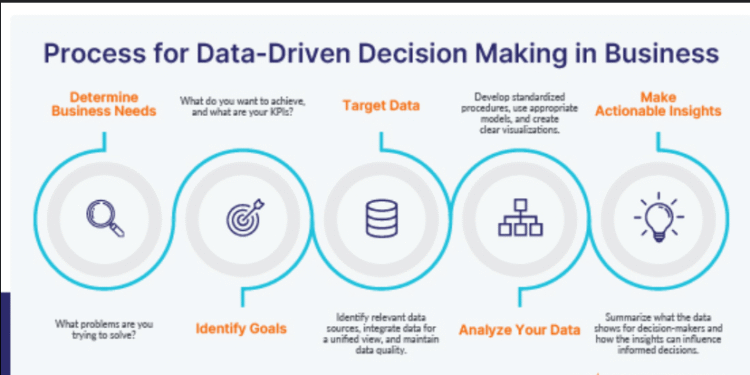In today’s fast-paced digital landscape, data is the foundation of nearly every business decision. But simply having data isn’t enough. Organizations must be able to collect, organize, analyze, and interpret it to gain meaningful insights and stay competitive. That’s where a data management tool becomes indispensable.
A robust data management tool does more than just store information—it transforms raw data into a valuable asset that improves operational efficiency and supports smart, strategic decision-making. From streamlining data workflows to ensuring data quality and compliance, these tools play a critical role in helping businesses succeed in a data-driven world.
What Is a Data Management Tool?
A data management tool is software that helps organizations manage their data lifecycle—from data collection and integration to storage, organization, analysis, and governance. These tools provide a centralized platform for handling vast amounts of structured and unstructured data efficiently.
Modern data management tools are equipped with features like data cleansing, metadata management, data lineage tracking, role-based access control, and advanced analytics capabilities. They are designed to work with databases, data warehouses, cloud environments, and various third-party integrations.
The Importance of Efficient Data Management
Poor data management leads to inaccuracies, redundancies, and wasted resources. It can also make it difficult to comply with regulatory requirements such as GDPR, HIPAA, or industry-specific mandates.
On the other hand, an effective data management tool ensures that data is accurate, accessible, and secure—enabling businesses to make faster, more informed decisions while reducing operational inefficiencies.
How Data Management Tools Improve Decision-Making
1. Access to Real-Time, High-Quality Data
One of the primary benefits of a data management tool is its ability to consolidate data from multiple sources and provide a single source of truth. This eliminates data silos and reduces the risk of inconsistencies.
Real-time access to accurate data enables decision-makers to respond quickly to market changes, customer demands, or operational issues. Whether it’s optimizing inventory, adjusting marketing strategies, or forecasting financial outcomes, reliable data empowers leaders to act confidently.
2. Advanced Analytics and Insights
Many data management tools come equipped with built-in analytics engines or can easily integrate with business intelligence platforms. These capabilities help convert raw data into actionable insights.
For example, predictive analytics can identify trends and patterns that may not be immediately obvious. This foresight allows businesses to anticipate challenges, uncover opportunities, and make proactive, data-driven decisions.
3. Improved Collaboration Across Departments
Data-driven decision-making isn’t confined to just IT or leadership teams. Marketing, finance, operations, and customer service departments all benefit from having access to reliable data.
A centralized data management tool encourages cross-functional collaboration by ensuring that everyone is working with the same, up-to-date information. This alignment enhances communication, reduces duplication of effort, and supports unified decision-making.
4. Enhanced Data Governance and Compliance
Trustworthy decision-making depends on trustworthy data. That means data must be not only accurate but also compliant with legal and regulatory standards.
Data management tools often include features for tracking data lineage, applying access controls, and maintaining audit trails. These functionalities ensure that organizations remain compliant with data protection laws and can confidently report data usage when required.
5. Customizable Dashboards and Reporting
Most modern data management platforms provide customizable dashboards and reporting tools that enable users to visualize data in intuitive formats—charts, graphs, heatmaps, etc.
These visualizations make it easier for executives and team leads to interpret complex datasets at a glance and make timely, strategic decisions. It also supports transparency and accountability throughout the organization.
How Data Management Tools Improve Efficiency
1. Automated Data Integration and Workflows
Manual data entry and transfer are not only time-consuming but also error-prone. A powerful data management tool automates the collection, transformation, and loading (ETL) of data from different sources.
Automation reduces human intervention, speeds up processes, and minimizes errors—allowing teams to focus on high-value tasks instead of routine data handling.
2. Scalability for Growing Data Volumes
As businesses expand, so does the volume and variety of data they generate. A scalable data management tool grows with your organization, seamlessly handling larger datasets without performance degradation.
This ensures that you don’t have to constantly switch platforms or invest in new tools every time your data needs increase.
3. Reduced IT Burden
Centralizing data management through a single platform reduces the complexity of maintaining multiple systems and databases. This lightens the workload on IT departments, as they can monitor, maintain, and troubleshoot data operations from one unified dashboard.
It also supports faster onboarding of new users, simplified user permissions, and more efficient data governance practices.
4. Faster Response Times
When data is clean, organized, and readily available, teams can respond more quickly to issues or opportunities. Whether it’s addressing a customer complaint, launching a new campaign, or troubleshooting a supply chain bottleneck, speed matters—and a data management tool makes speed possible.
Choosing the Right Data Management Tool
With countless options available, businesses should evaluate tools based on:
- Ease of integration with existing systems
- User interface and experience
- Support for real-time analytics
- Security and compliance features
- Scalability and flexibility
- Vendor support and community resources
Popular data management platforms include Informatica, Talend, Microsoft Azure Data Factory, Oracle Data Management, and Snowflake, among others.
Conclusion
In a digital-first world, data is power—but only if it’s well-managed. A data management tool transforms chaotic, siloed, or outdated data into a strategic asset that drives smarter decisions and streamlined operations.
From improving collaboration and compliance to enabling real-time analytics and automation, data management tools are essential for any business aiming to stay competitive and efficient. By investing in the right platform, companies can unlock the true value of their data and future-proof their decision-making capabilities.







